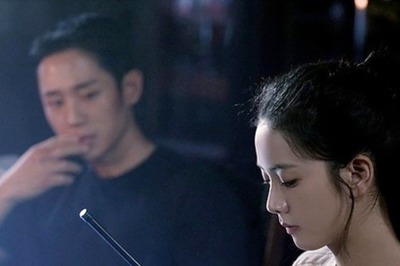
views
North Korea’s state television channel recently censored the trousers of British gardening show host Alan Titchmarsh during the airing of his BBC show Garden Secrets. The presenter’s bottomwear was pixelated, presumably because he was wearing a pair of jeans, a garment banned in North Korea. When asked about the incident, Alan Titchmarsh humorously said, “It’s taken me to reach the age of 74 to be regarded in the same sort of breath as Elvis Presley, Tom Jones, Rod Stewart. You know, wearing trousers that are generally considered by those of us of a sensitive disposition to be rather too tight,” reports BBC.
He went on to say, “I’ve never seen myself as a dangerous subversive imperialist – I’m generally regarded as rather cosy and pretty harmless, so actually, it’s given me a bit of street cred, really, hasn’t it?”
Reports suggest that jeans have been banned in North Korea since the 1990s. In recent years, there has been a crackdown on jeans, particularly skinny and ripped jeans, due to their increasing popularity in South Korea.
Watch the clip here:
????????????‼️ North Korea showed Alan Titchmarsh’s 2010 episode of Garden Confidential to morning audiences, but censored his jeans. In North Korea, jeans are considered a symbol of Western imperialism and have been banned since the 1990s.
— Lord Bebo (@MyLordBebo) March 27, 2024
Seoul’s Korea University professor Nam Sung-wook, an expert in North Korean studies, connected this incident of blurring of jeans to North Korea’s recently implemented “Reactionary Ideology and Culture Rejection Act.” He explained to CNN that this act seeks to prevent North Korean residents from mimicking foreign countries, including their clothing and language.
He also explained that North Korea has prohibited its residents from wearing jeans due to their association with American imperialism.
According to South Korean research fellow Peter Ward, North Korea’s censorship reflects its stance against ‘anti-socialist culture and ideology.’ He explained to CNN, “Blue jeans are linked to ‘decadent’ Western culture, as they were in the Soviet Union, and Kim Jong Il instructed officials to eliminate them from the country in the 1990s.”
“They have been campaigning against anti-socialist culture since at least the early 1990s,” Ward continued. “The intensity of these campaigns has increased, particularly since 2020.”
In that year, the Reactionary Ideology and Culture Rejection Act was enacted, which prohibits the populace from distributing, viewing, or listening to any cultural content classified as anti-socialist.
During this period, the state-operated Korean Central News Agency stated that the law was designed to prevent “the spread of anti-socialist ideology and culture in order to safeguard the North Korean ideology, spirit, and culture,” Ward explained during his conversation with CNN.




















Comments
0 comment